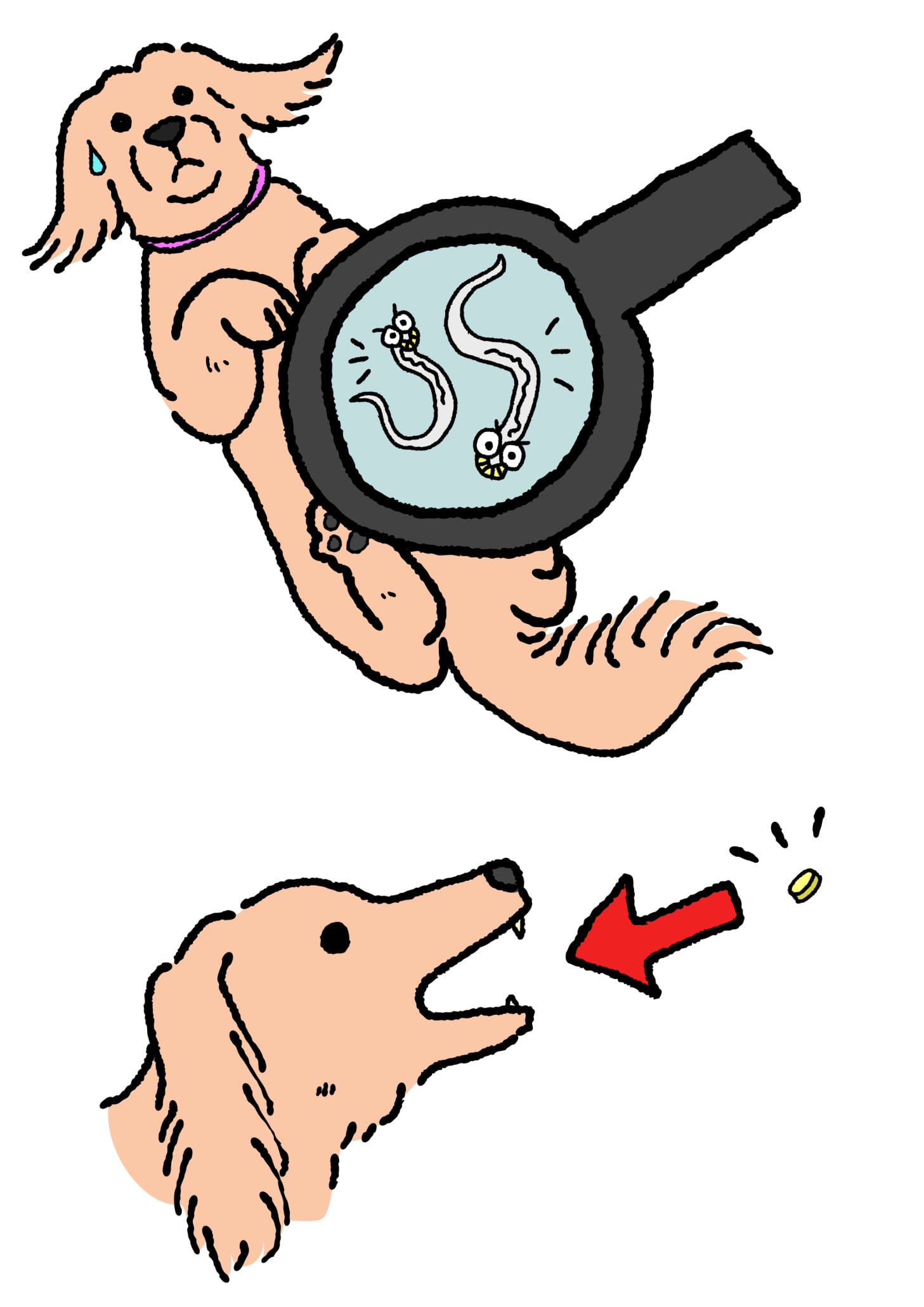The bond between humans and their dogs is often profound, with canine companions frequently viewed as integral members of the family. This close relationship, filled with shared affection and living spaces, can sometimes lead to an unintended exchange of parasites. A common and valid concern for many pet owners is: “Can humans get worms from dogs?” This question highlights the importance of understanding parasite transmission to ensure the health and well-being of both pets and their human families.
Understanding Worm Transmission from Dogs
Parasites, including various types of worms, can indeed transfer from animals to humans through several pathways. Recognizing these transmission routes is the fundamental step in effective prevention.
Direct Contact with Contaminated Feces or Soil
One of the primary ways humans can contract worms from dogs is through direct contact with feces or soil contaminated with worm eggs or larvae. When a dog harbors an intestinal worm infection, these parasitic forms are shed in their stool. If a person, particularly a child who may be less aware of hygiene practices, comes into contact with this contaminated material and subsequently touches their mouth or prepares food without thorough handwashing, transmission can occur.
Ingestion of Contaminated Food or Water
Worm eggs or larvae can contaminate water sources or food items that have been exposed to infected soil or feces. The consumption of such contaminated food or water by humans can lead to parasitic infections.
Common Worms Transmissible from Dogs to Humans
Several types of intestinal worms that infect dogs also pose a risk to human health. Understanding these common parasites is vital for implementing appropriate prevention strategies and for early detection of potential infections.
- Roundworms (Toxocara canis): These are among the most frequently transmitted worms from dogs to humans. In humans, roundworm larvae can cause a condition called visceral larva migrans (VLM). This occurs when the larvae migrate through the body’s internal organs, potentially leading to damage and other serious health complications.
- Hookworms (Ancylostoma caninum, Uncinaria stenocephala): Hookworms can also be passed from dogs to humans, resulting in a condition known as cutaneous larva migrans (CLM). CLM is characterized by intensely itchy, raised red tracks on the skin, marking the path of migrating larvae.
- Tapeworms (Dipylidium caninum): While the transmission of tapeworms from dogs to humans is less common, it is possible. This typically happens through the accidental ingestion of a flea that is infected with tapeworm larvae.
Essential Prevention Strategies for Pet Owners
Protecting your family and pets from the transmission of worms requires a multifaceted approach, encompassing rigorous personal hygiene, diligent pet care, and effective environmental management. Implementing these actionable tips can significantly reduce the risk of parasitic infections.
Consistent Veterinary Care and Deworming
Regular veterinary check-ups and adherence to a veterinarian-recommended deworming schedule for your dog are critical preventive measures. A veterinarian can provide guidance on the most appropriate deworming protocol based on your dog’s age, lifestyle, and risk factors.
Diligent Personal Hygiene Practices
Practicing regular and thorough handwashing is essential, particularly after interacting with your dog, handling their waste, or engaging in activities like gardening where contact with contaminated soil is possible. Educating children about the importance of hand hygiene can further minimize transmission risks.
Maintaining Environmental Cleanliness
Prompt and proper disposal of pet waste is crucial for preventing the spread of worm eggs. Maintaining a clean living environment for both your pets and your family helps to minimize the potential for worm contamination within your home and yard.
Recognizing When to Seek Veterinary Attention
If you suspect your dog may have a worm infestation, it is imperative to consult a veterinarian immediately. Common signs of worms in dogs include the visible presence of worms in their stool, unexplained weight loss, a distended or bloated abdomen, lethargy, and noticeable changes in appetite or eating habits. Early detection and treatment are key to ensuring your dog’s health and preventing potential transmission to humans.
References
Boulder Veterinary Hospital. (n.d.). Can Humans Get Worms from Dogs?.

